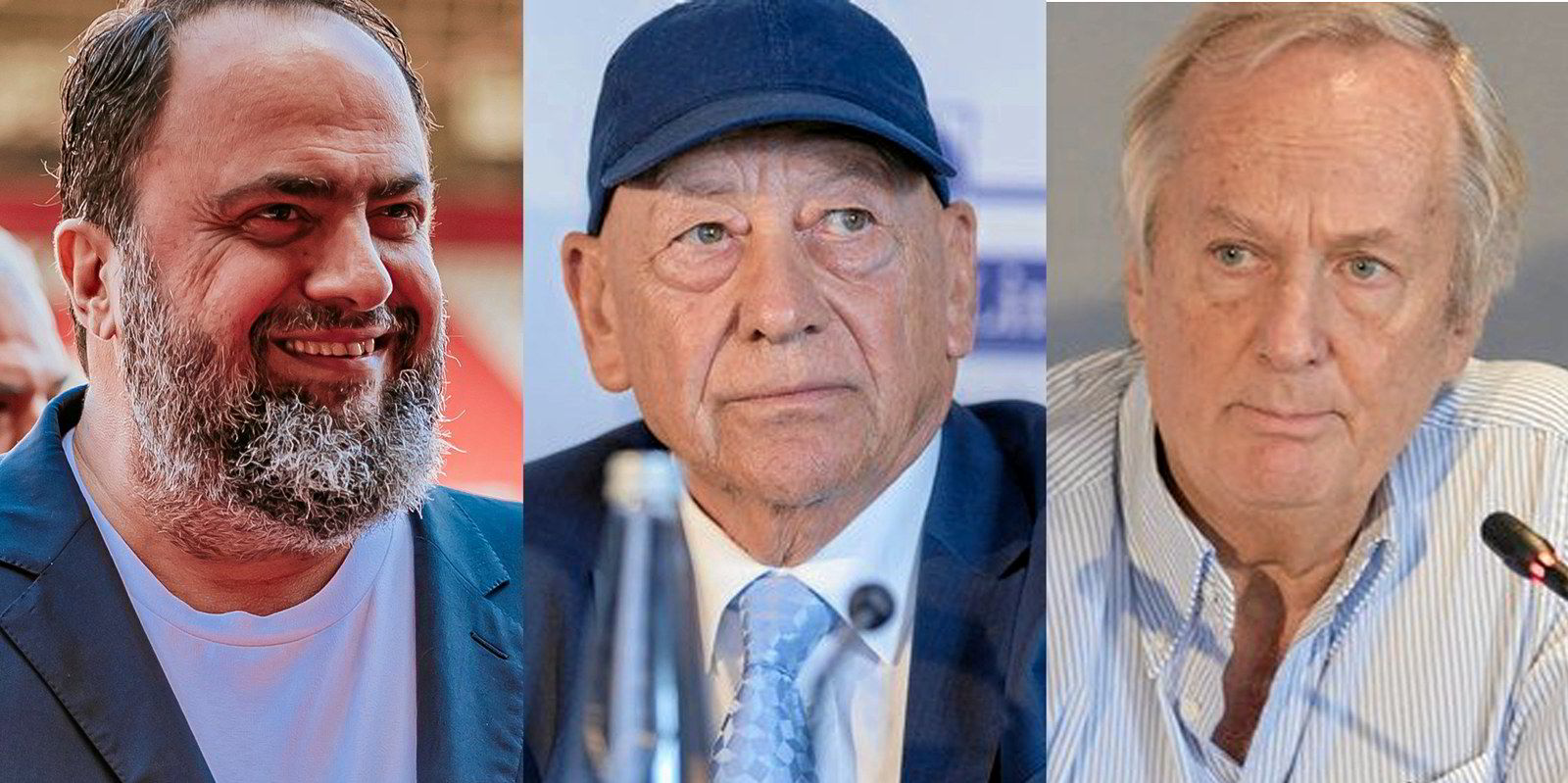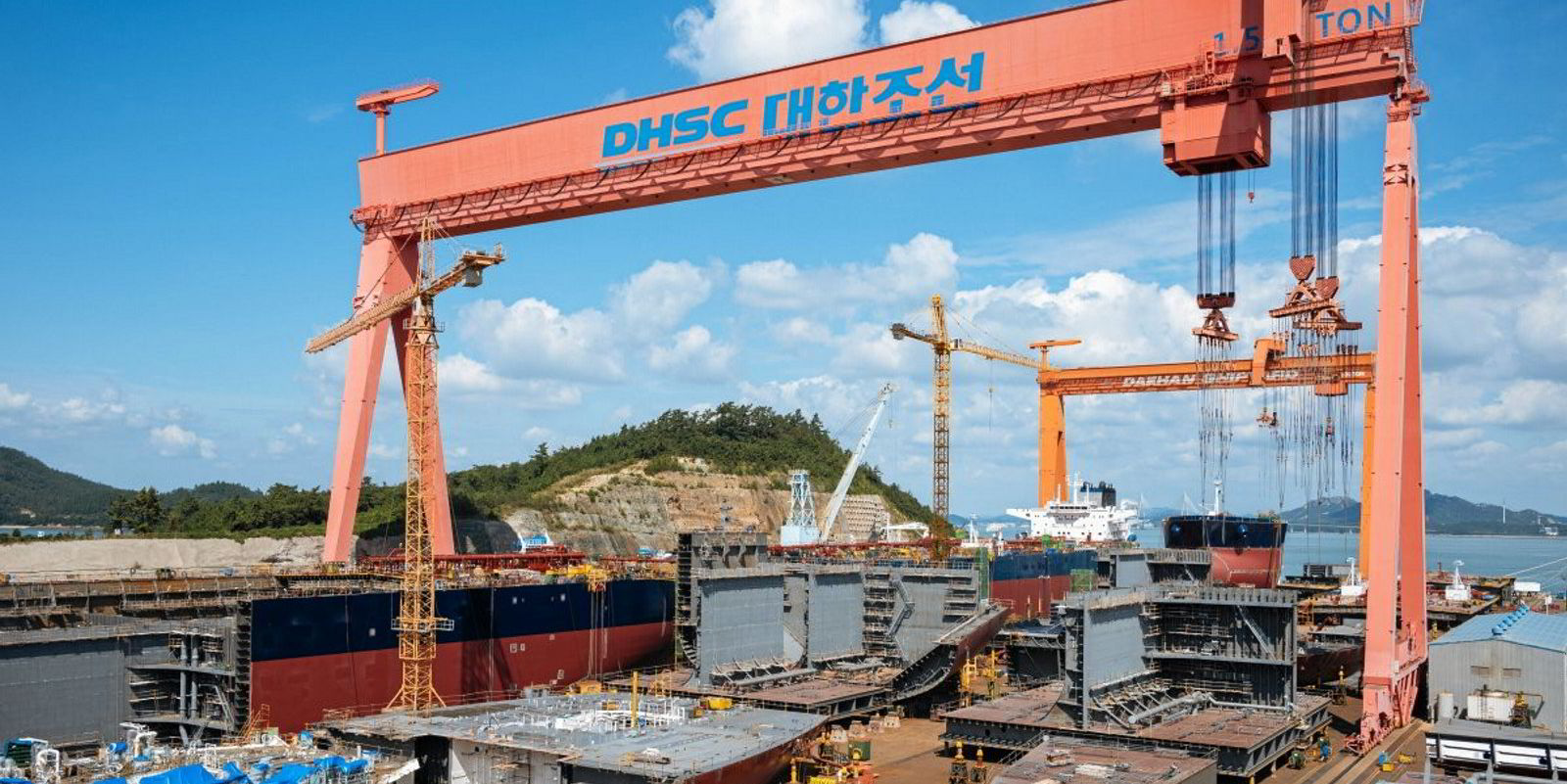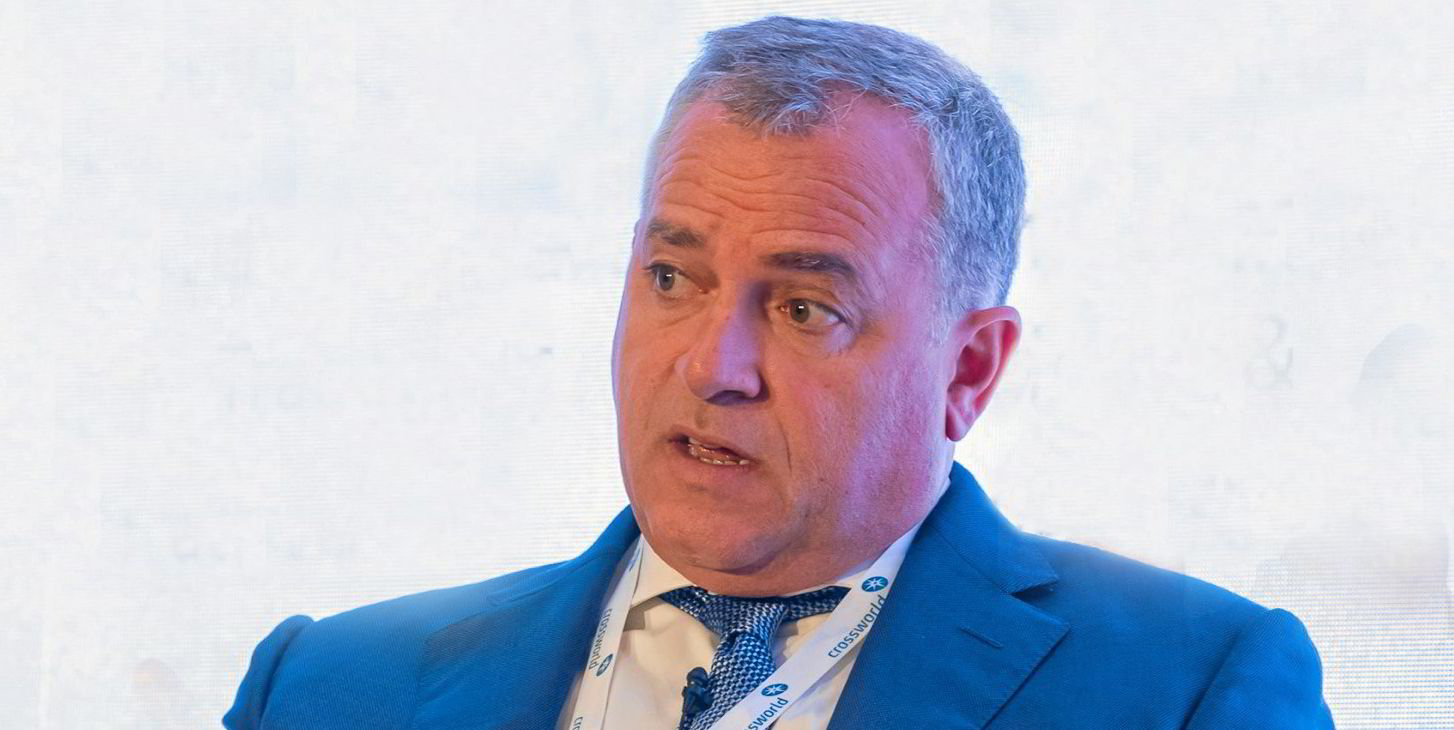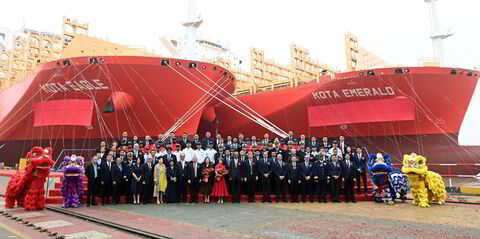For a shipowner who has spent billions of dollars on newbuildings, George Procopiou is surprisingly candid about the risks.
“One has to be mad to be in shipping,” the major Greek player said in Piraeus in May.
With technological advances, sanctions, trade wars and high interest rates, the challenges appear daunting.
But despite the uncertainties, Greek shipowners have ended years of agonising waiting and are putting their newbuilding cards on the table.
Procopiou, George Economou and Evangelos Marinakis have ratcheted their orders up to a pace not seen since the giddy days before the financial crisis.
After contracting just 77 ships in 2020, 130 in 2021 and 141 in 2022, the tally skyrocketed to 301 last year, according to data compiled by TradeWinds from various sources.
In the teeth of rising shipyard prices, Greek owners have maintained the pace in 2024, booking about 100 extra ships in the first four months.
This surge has catapulted Greeks to the top of international orderbook tables.
At the end of 2020, Hellenes’ outstanding orderbook had shrunk to 160 ships, according to data from Clarksons. The tally slowly rose to 248 newbuildings two years later.
In 2023, the floodgates opened, with the orderbook reaching over 447 ships by year-end. By April of the following year, this tally surged to 534 ships, valued at a staggering $40bn, according to estimates by TradeWinds.
Consequently, Greek shipowners unseated the Chinese, becoming the world’s leading contractors, with 38.9m dwt, 7.16m cbm and 2.1m teu on order.
The Greek newbuilding spree is also reflected in individual companies.
Three of the six companies with the world’s biggest tanker newbuilding programmes are Greek, according to Clarksons’ shipowner orderbook monitor, with Procopiou’s Dynacom leading the pack.
Procopiou leads in bulkers
Procopiou has the world’s biggest bulker orderbook with 26 vessels — just ahead of Bocimar, which has 24 but remains top in terms of tonnage, as the Belgian company orders larger newcastlemaxes.
Procopiou’s outstanding orderbook of tankers, bulkers and LNG carriers is estimated at an aggregate of 76 newbuildings worth $6.2bn.
“Ordering or buying a ship is never an easy decision — it’s the throw of a dice — we’re used to supporting our wagers, no matter how adverse the conditions, and come out as winners,” he told the Naftemporiki shipping conference last month.
Procopiou may be in a better position to make such gambles than most.
“Having 120 ships on the water debt-free allows one to take on a little risk,” he said.
Economou’s TMS Group and Cardiff Marine Group racked up an orderbook of more than 50 ships over the past two years, worth $4.6bn.
Marinakis, who invested big in LNG carriers as early as 2018, has more than 40 ships on order worth $4.7bn, including the first Greek-owned CO2 carriers.
Kriton Lendoudis’ Evalend Shipping, which has invested in everything from LPG, LNG and ammonia carriers to bulkers and tankers, is not far behind.
Several of these owners have been outspoken about the motives behind their extensive newbuilding programmes.
Citing lingering uncertainties about the commercial and technical maturity of advanced, low-carbon designs, players such as Procopiou and Star Bulk’s Petros Pappas felt they could no longer wait to renew their fleets, opting for the latest design of fuel-efficient conventionally fuelled vessels instead.
Their thinking is that such fuel-efficient vessels will be enough to carry their companies over the next decade or so before it is hoped that zero-carbon ships become available as workhorses of international trade.
“Each vessel built is better than the previous one. New ships with new engines consume 35% to 40% less fuel and emit less — not only do they comply with regulations but go beyond them,” Procopiou said.
“Politicians promise the desirable. We’re businessmen, we advocate and support what’s doable.”
Leon Patitsas, one of the first owners who started ordering tankers in the current cycle, was initially attracted by record low newbuilding prices amid the gloom and doom of the coronavirus pandemic.
But simple asset play considerations quickly developed into a full-fledged geopolitical play, as newbuilding orders began mounting on a bet that energy security concerns amid the West’s standoff with rivals such as Russia will ultimately trump green transition concerns.
Tankers dominate orderbook
As the oil trade is the market most visibly boosted by geopolitical wobbles, it hardly comes as a surprise that tankers are claiming the lion’s share of the Greek orderbook.
Oil and product carriers account for 192 of the 401 ships booked by Greek companies in 2023 and the first four months of 2024 — far ahead of 132 bulkers and 35 gas carriers.
It is perhaps telling that companies that have been absent from tankers for decades are choosing this moment to return to the sector.
A case in point is the Andrianopoulos family’s Cape Shipping.
A low-profile boxship and bulker owner that probably did very well during the container ship boom, it boldly entered the tanker frame in December, piling up $400m worth of orders for six suezmaxes, LR1s and LR2s.






